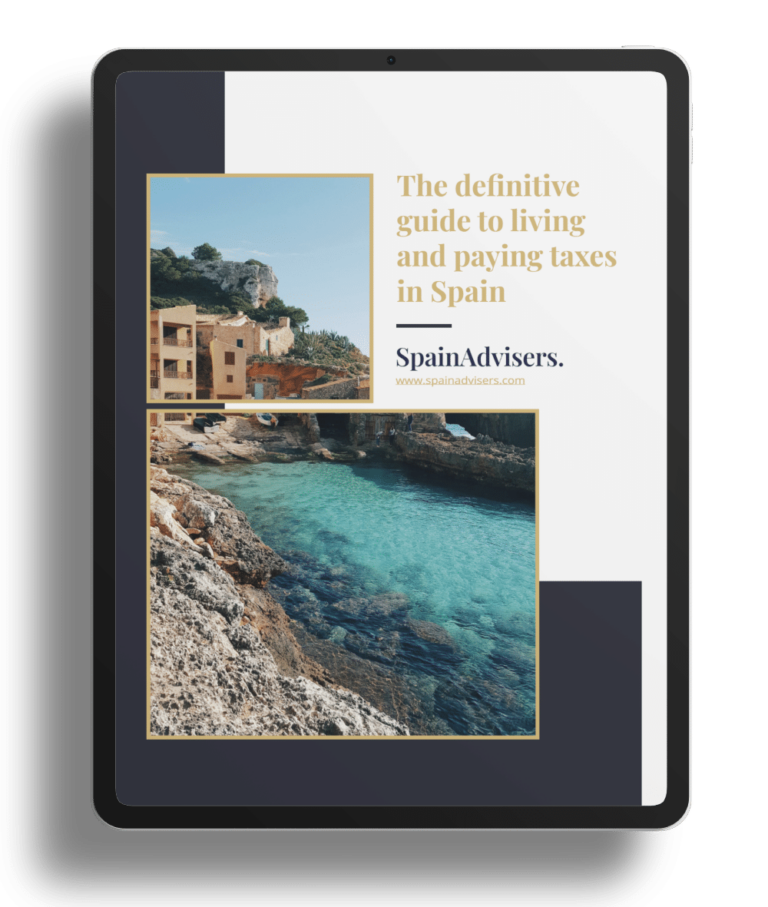Living in Spain is a dream for many foreigners. But this dream can turn into a nightmare because of the numerous bureaucratic obstacles that a non-EU citizen wishing to move to Spain may face.
However, you shouldn’t let pessimism spread because there’s a fairly simple way to live in Spain without being a citizen of the European Union: temporary non-lucrative residence.
What is a non-lucrative residence?
Today, we’ll detail all the necessary requirements to obtain the non-lucrative temporary residence authorization.
But, what exactly is a non-lucrative temporary residence?
It’s a permit that authorizes non-resident citizens of member states of the European Union to stay for an extended period of time in Spain, beyond the usual 3-month period allowed for a tourist visa.
Although this permit doesn’t require the realization of investments in Spanish territory (as the Golden Visa does), it has a clear disadvantage: this residence authorization does not allow economic or professional activities in Spain.
On the other hand, it’ll be possible to invest in Spain or even to enroll in study centers and carry out professional practices under the protection of a non-lucrative residence permit.
Requirements to obtain it
It should be remembered that this authorization is intended for citizens of non-European Union countries, since European citizens already have the right to move freely in this territory and, therefore, can move and reside in any other member state.
Applicants must meet the following requirements:
- Not to be irregularly present in Spanish territory.
- Applicants must not have a criminal record in Spain or in the previous countries where they have resided during the last five years.
- Not to be listed as rejectable in the territorial space of countries with which Spain has signed an agreement in such a sense.
- To have sufficient economical means for the maintenance and stay of himself and his family during his time of residence in Spain.
- To have public insurance or private health insurance arranged with an insurance company authorized to operate in Spain.
- Not to have a commitment not to return to Spain.
- Not to suffer from any of the diseases that may have serious public health repercussions, according to Spanish regulations.
- Pay the necessary fees for the processing of the application.
Among these requirements, there’s one that is especially relevant: to have sufficient economic means to cover the maintenance and stay.
Remember that this type of permit doesn’t allow you to work, so your financial support cannot come from there. Therefore, there are two ways to meet this requirement:
- Either to have a sufficient monthly income.
- Or to have sufficient previous assets.
It must be demonstrated that one will have a monthly amount in euros that exceeds 400% of the Public Indicator of Multiple Effects Income (“IPREM”). This indicator changes every year, but in 2022 it is €579.02, so you would need €2,316.08 per month.
In addition, if you have dependents, a monthly amount of 100% of the IPREM must be added to the above for each of those dependents.
This means that if, for example, you want to move to Spain with a minor in your charge and stay for a year, you’ll have two ways:
- Either demonstrate a monthly income of about €2,895.1 (€2,316.08 + €579.02 for the minor) that doesn’t come from work or professional activities.
- Or have assets (for example, an amount in your bank account) of about €34,741.2 (the above monthly figure, multiplied by 12).
This solvency can be proven by means of bank ownership certificates, property deeds, certified checks, or even credit cards.
Mandatory insurance
Finally, you must take out insurance with a private entity operating in Spain. This insurance must meet the following requirements:
- It must cover the entire medical visit (without co-payment).
- It must cover the entire period of validity of the residence permit.
- Must be complete, without relevant exclusions.
- Must cover assistance throughout Spain.
How to obtain this permit?
To obtain this type of residence permit, the first step is to apply for the visa in person at the diplomatic mission or consular office of the country in which you reside. In other words, this application must be made from abroad.
For this procedure, you’ll need the following documents:
- Application for a national visa.
- Application form for non-lucrative temporary residence authorization and regime for minors, EX—01.
- Personal passport-size photos.
- Valid passport or travel document (valid for at least one year).
- Criminal record certificate or equivalent.
- Documents proving that the economic capacity described above is available.
- Medical certificate that certifies that the applicant doesn’t suffer from the diseases described above.
Authorities must resolve the application within one month.
Once the visa has been granted, you must pick it up at the place where you applied for it within a maximum period of one month. And as soon as you pick it up, you must travel to Spain within 3 months from the entry into force of the visa.
When you arrive in Spain, you’ll have one month to go to a Foreigners’ Office or Police Station and apply for the Foreigner’s Identity Card. This card will state the duration of your temporary residence authorization.
How long does this residence permit last?
The initial residence permit will have a duration of one year from the date on which the authorized person enters Spain.
The renewal of the residence permit may be applied for three months before the expiration date. To obtain the renewal, it’ll be necessary:
- To have the initial authorization mentioned.
- Continue counting on the mentioned sufficient economical means. To prove that one has sufficient patrimony, it’ll have to be done considering that the authorization, in this case, will last two years. That means that, if you do not have dependents, with the current IPREM you will have to prove that you have €55,585.92.
- To have the medical insurance already indicated.
- Schooling of the minors in charge of the authorized person, if they were in his charge.
The application must be accompanied by:
- Copy of the valid passport.
- Documents that accredit the economical means.
- Report of the corresponding autonomic authority that accredits the schooling of the minor in charge (if there’s one).
If after three months from the application, no answer has been received, it’ll be understood that the renewal application has been accepted.
Upon renewal, the new authorization will have a duration of two years. It may be renewed a second time so that the temporary non-lucrative residence will have a maximum duration of five years.
What taxes are paid under this regime?
By becoming a Spanish non-lucrative resident, you also become a Spanish tax resident.
The only nuance is at what exact moment you acquire this status: if, for example, you arrived in Spain in October 2022, you will not be a tax resident in Spain until 2023 because during 2022 you will not have spent more than 183 days in Spain.
As a Spanish tax resident, you will be taxed in Spain on your personal income tax for all the income you obtain from any country in the world, including Spain.
Can I also benefit from the Beckham Law?
Unfortunately, no.
The Beckham Law or Special Tax Regime for Inpatriates is a special regime for those people who start to be tax residents in Spain and that allows a notable saving in the IRPF. However, this regime isn’t compatible with non-lucrative residence, since it requires that the persons moving to Spain have an employment contract.
In short, any person under a non-lucrative residence is subject to exactly the same taxes as any other tax resident. There are no special taxes or exemptions of any kind.
Advantages of this type of residence
The non-lucrative residency has some very clear advantages:
- It’s not necessary to make any investment in Spain to obtain a residence permit in this way.
- This type of permit can be used as a way to facilitate the acquisition of Spanish nationality. In case of having sufficient funds to stay long enough to opt to obtain the nationality (meaning, 10 years in general, although there are certain reductions for Latin American countries).
- Non-lucrative residency permits the benefit of freedom of movement through the countries included in the Schengen treaty, of which Spain is a member.
- This residence authorization is very suitable for those persons whose livelihood consists of passive income since they fit in the requirement of not carrying out economic activity.
Although this residency isn’t suitable for people who intend to work remotely from Spain, this situation may change with the processing of the Bill for the Promotion of the Emerging Companies Ecosystem. With this bill, the so-called Digital Nomad Visa is expected to be approved.
This authorization allows those professionals who meet certain requirements to work from Spain without needing their company to be located in said country.
Transition to the work permit
Besides, with the non-lucrative residence, it’ll be possible to make a transition until obtaining a work permit. For this, it’ll be necessary to make a modification of residence that will imply processing a work permit.
This means that it’ll be necessary to obtain a job. Once obtained, the employing entity will have to apply for authorization for the resident to obtain the work permit.
How to take the first step
If you’re considering changing your residence to Spain and you have technical doubts, or you’re not sure which tax regime is the most convenient for you, SpainAdvisers can help you. Do not hesitate to contact us through the form or by email at [email protected].
And if you still don’t know your ideal tax destination, we recommend you to read our free report “The definitive guide to living and paying taxes in Spain”, available below.



 All communications are encrypted and will be treated with absolute confidentiality. Your data will never be shared with third parties.
All communications are encrypted and will be treated with absolute confidentiality. Your data will never be shared with third parties. 


